HOW TO TELL IF A GRAPH REPRESENTS A FUNCTION
Subscribe to our ▶️ YouTube channel 🔴 for the latest videos, updates, and tips.
Vertical Line Test
A curve drawn in a graph represents a function, if every vertical line intersects the curve in at most one point.
Question 1 :
Determine whether the graph given below represent functions. Give reason for your answers concerning each graph.
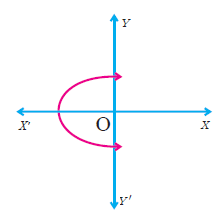
Solution :
Since the graph intersects the vertical line (y-axis) at two points, it is not a function.
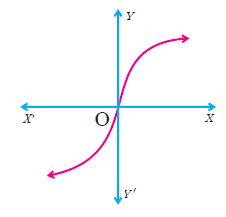
Solution :
The given graph intersects the vertical line (y-axis) at one point. It is a function.
(iii)
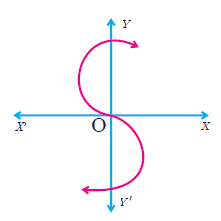
Solution :
The graph intersects the y-axis at three points, hence it is not a function.
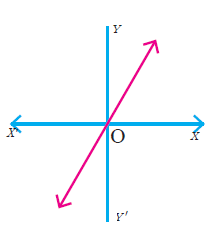
Solution :
The graph intersects the vertical line at most one point. Hence it is a function.
Question 2 :
Let f : A -> B be a function defined by f (x) = (x/2) - 1 where A = {2, 4, 6, 10, 12}, B = {0, 1, 2, 4, 5, 9} .
Represent f by
(i) set of ordered pairs; (ii) a table; (iii) an arrow diagram; (iv) a graph
Solution :
(i) set of ordered pairs
f (x) = (x/2) - 1
|
x = 2 f(2) = (2/2) - 1 = 1 - 1 f(2) = 0 |
x = 4 f(4) = (4/2) - 1 = 2 - 1 f(4) = 1 |
x = 6 f(6) = (6/2) - 1 = 3 - 1 f(6) = 2 |
|
x = 10 f(10) = (10/2) - 1 = 5 - 1 f(10) = 4 |
x = 12 f(12) = (12/2) - 1 = 6 - 1 f(12) = 5 |
Set of ordered pairs = {(2, 0) (4, 1) (6, 2) (10, 4) (12, 5)}
(ii) a table

(iii) an arrow diagram;
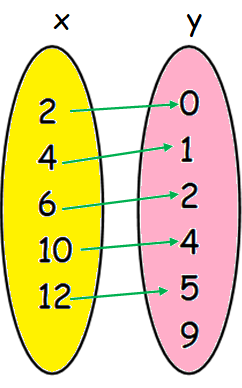
(iv) a graph
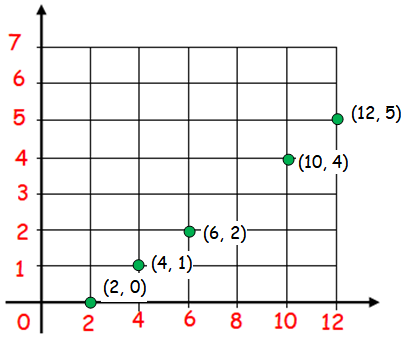
Question 3 :
Represent the function f = {(1, 2),(2, 2),(3, 2),(4, 3),(5, 4)} through (i) an arrow diagram (ii) a table form (iii) a graph
Solution :
(i) an arrow diagram
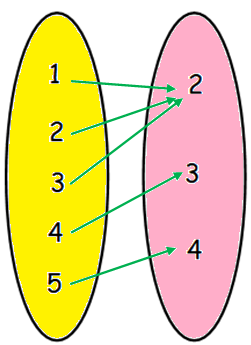
(ii) a table form

(iii) a graph
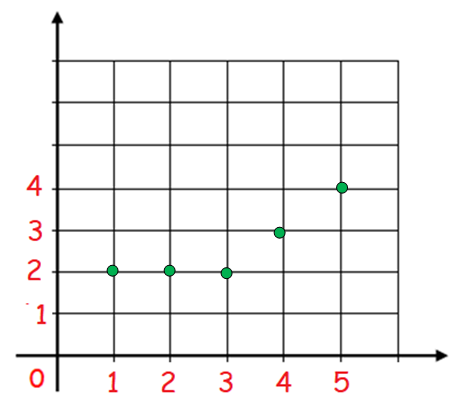
Subscribe to our ▶️ YouTube channel 🔴 for the latest videos, updates, and tips.
Kindly mail your feedback to v4formath@gmail.com
We always appreciate your feedback.
About Us | Contact Us | Privacy Policy
©All rights reserved. onlinemath4all.com

Recent Articles
-
SAT Math Problems and Solutions
Feb 14, 26 06:05 AM
SAT Math Problems and Solutions -
SAT Math Practice Questions with Answers
Feb 14, 26 05:47 AM
SAT Math Practice Questions with Answers -
SAT Math Practice Test with Answers
Feb 14, 26 02:30 AM
SAT Math Practice Test with Answers

